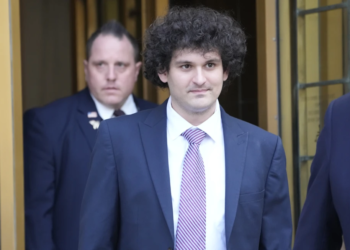Federal prosecutors are seeking a monthly payment of $250 from Elizabeth Holmes, the disgraced founder of Theranos, to be allocated to the victims of her failed blood testing startup once she is released from prison. However, Holmes’ legal team is objecting to this request, citing her “limited financial resources.”
Last week, the U.S. filed a motion to rectify what they referred to as “clerical errors,” which included the absence of a specified timeline for restitution from Holmes, who was once a billionaire. Holmes’ attorneys have voiced their opposition to these proposed changes.
After being convicted of fraud for deceiving investors and embezzling hundreds of millions of dollars through Theranos, Holmes, aged 39, began serving an 11-year sentence at a minimum-security facility in Bryan, Texas, last month. Her former partner, Ramesh “Sunny” Balwani, received a nearly 13-year prison sentence in California for his involvement in the fraudulent activities.
U.S. District Judge Edward Davila, in a ruling on May 16, ordered Holmes and Balwani to pay $452 million in restitution to the victims.
Following her release from prison, federal prosecutors are seeking a modified payment structure for Elizabeth Holmes, the disgraced founder of Theranos, to provide restitution to the victims of her fraudulent blood testing startup. Under the proposed plan, Holmes would be required to pay a minimum of $250 per month or 10% of her earnings, whichever amount is greater.
The prosecutors cited the judgment against Ramesh “Sunny” Balwani, the former Theranos COO, as a precedent. Balwani’s judgment mandates a minimum monthly payment of $1,000 during his supervised release.
Holmes’ defense team countered the prosecutors’ motion, arguing that the existing payment schedule outlined in her Amended Judgment, which includes payments while she is incarcerated, is not a clerical error. They emphasized that there is no indication in the record suggesting an oversight in the schedule after her release.
The defense further asserted that Balwani’s amended judgment does not address Holmes’ payment schedule, emphasizing the differences in their financial situations and the court’s appropriate differentiation in their treatment.
Throughout Holmes’ criminal fraud trial, her legal team has consistently presented financial arguments, highlighting the depleted state of her and Balwani’s finances due to extensive legal expenses and their claims of innocence.
The Associated Press reached out to the attorneys representing Holmes and the U.S. government for statements regarding the matter.




























